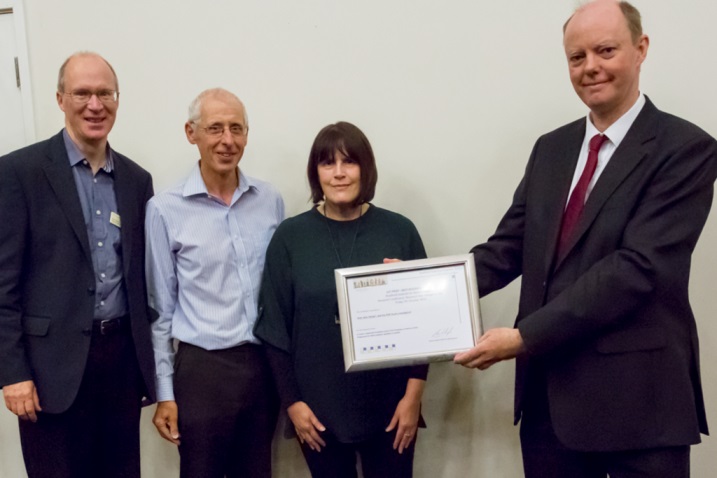Objectives and brief methodology
To improve delirium prevention for older people admitted to NHS acute hospitals through a programme of three linked projects to investigate the feasibility, acceptability, potential effectiveness and cost-effectiveness of a delirium prevention system of care.
- Develop a multi-component delirium prevention system of care suitable for use in NHS acute wards using the Hospital Elder Life Program (HELP) and the National Institute for Health and Care Excellence (NICE) delirium clinical guidelines as starting points.
- Identify strategies to support the implementation of the delirium prevention system of care.
- Determine the optimum methods to deliver the delirium prevention system of care in routine care.
- Conduct a feasibility study to assess the implementation and acceptability of the delirium prevention system of care, refine the content and delivery of the delirium prevention system of care, determine preliminary estimates of effectiveness and cost-effectiveness, assess feasibility of conducting a definitive trial and gather data to inform its design.

Professor Chris Whitty, Government Chief Scientific Adviser presenting the Best Research Poster award to the POD research team at the Bradford Institute for Health Research Conference 2016
The programme consists of the following three projects:
Project 1: Development of the Prevention of Delirium (POD) Programme (1 December 2009 – 31 May 2011)
Using case studies in three general hospitals, we reviewed HELP and NICE clinical guidelines and developed the Prevention of Delirium (POD) Programme, a multi-component prevention of delirium system of care designed to be integrated into ward routines.
Project 2: pilot to test implementation feasibility and acceptability of the POD Programme (1 June 2011 – 31 July 2013)
We used further case studies in five hospitals to investigate the feasibility and acceptability of POD to provide a realistic assessment of the practical, professional and cultural issues associated with POD implementation.
Project 3: preliminary testing of the POD delirium prevention system of care (1 October 2013 – 30 September 2015)
We have recruited 713 participants to a cluster randomised, controlled, feasibility study in 16 wards in eight hospitals to test for preliminary evidence of effectiveness and cost-effectiveness of the POD programme and to gather data to inform recruitment, appropriate outcome measure selection and sample size to design a large scale trial.
Participant Criteria
Patients admitted to participating elderly care and orthopaedic wards.
Funding agency
This summary presents independent research funded by the National Institute for Health and Care Research (Research for Patient Benefit Programme, An investigation of the Hospital Elder Life Program (HELP) system of care in NHS acute trusts to prevent delirium, RP-PG-0108-10037). The views expressed are those of the author(s) and not necessarily those of the NHS, the NIHR or the Department of Health.
